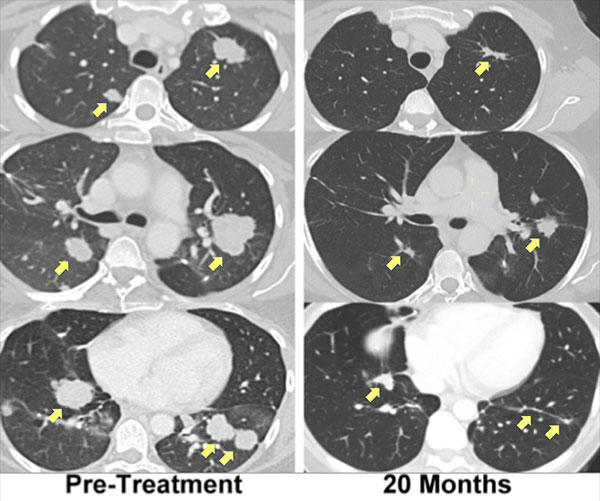Because of this doctors generally divide bile duct cancers into.
Current treatments for bile duct cancer.
Immune checkpoint inhibitor therapy is a type of immunotherapy that may be used to treat bile duct cancer.
Substances made by the body or made in a laboratory are used to boost direct or restore the body s natural defenses against cancer.
Doctors are constantly improving the surgical techniques used to treat bile duct cancers and looking for ways.
Researchers are looking at better ways to use radiation therapy.
What s new in bile duct cancer research.
For some people treatment can destroy the cancer.
In others it may never go away entirely.
For more advanced bile duct cancers nearby liver tissue pancreas tissue or lymph nodes may be removed as well.
You may need regular doses of chemotherapy radiation or other treatments to keep it in check.
In view of their modes and patterns of infiltration the best treatment for hilar bile duct cancer is extrahepatic bile duct resection plus hepatectomy and regional lymphadenectomy and the best treatment for middle and distal bile duct cancer is pancreatoduodenectomy.
When possible doctors try to remove as much of the cancer as they can.
For very small bile duct cancers this involves removing part of the bile duct and joining the cut ends.
Surgical treatment for bile duct cancer.
One example is using a different.
This type of cancer treatment is also called biotherapy or biologic therapy.
Whenever possible surgery is the main treatment for bile duct cancers.
Resectable cancers those that doctors believe can be removed completely by surgery based on the results of imaging tests and other tests.
During pdt a doctor gives an inactive form of a drug and then directs a special light at the tumor in the bile duct.
Radiation therapy with advanced radiation therapy delivery systems radiation oncologists are better able to target difficult to reach tumors in the bile duct and direct higher radiation doses at bile duct cancer cells while reducing exposure to normal healthy tissue.

